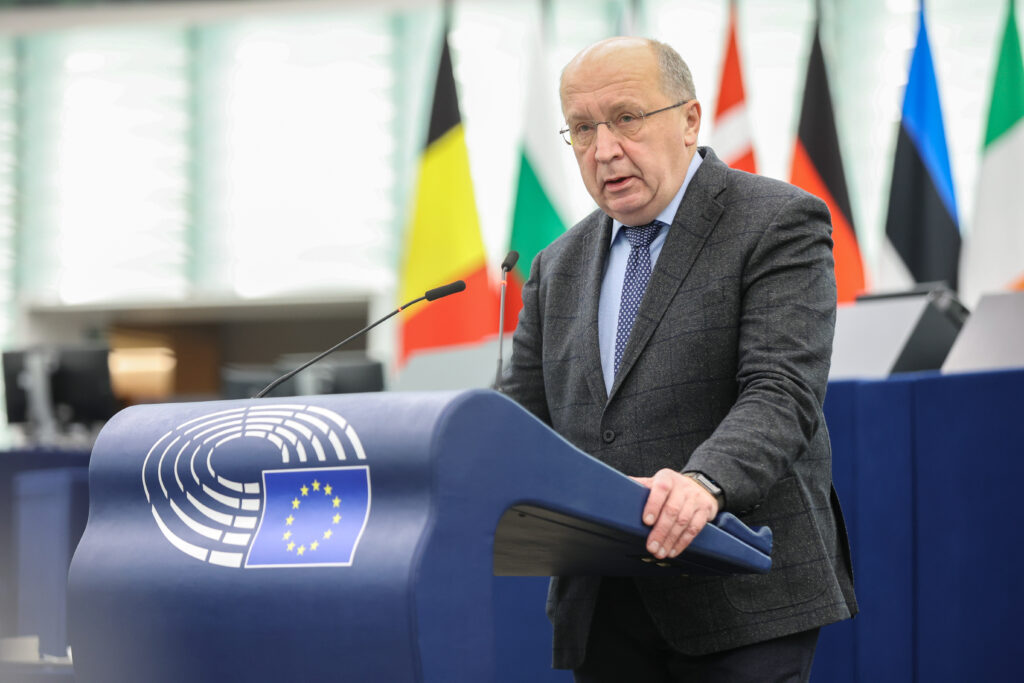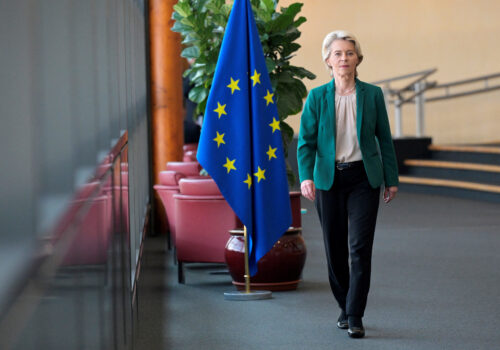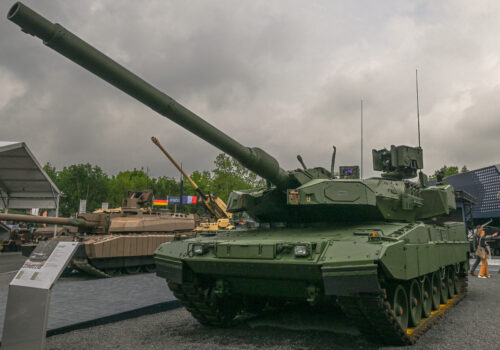This week, the European Union (EU) appointed Andrius Kubilius, former prime minister of Lithuania, as the first commissioner for defense and space. While the European Commission has advanced numerous defense initiatives in recent years, the creation of this role is a clear signal of the bloc’s intention to be a major strategic actor on defense. However, without sufficient funds or a clearly defined and supported mandate for this ambitious role, significant work will be needed to ensure that this appointment will not remain merely symbolic and rather serve as a catalyst for genuine reform.
Building a comprehensive defense strategy from the ground up requires not just vision but also substantial financial commitment. Earlier this year, European Commission President Ursula von der Leyen highlighted the need for a major investment of over five hundred billion euros in defense spending over the next ten years. Kubilius will be in charge of the EU’s efforts to bring greater coherence to defense and security spending across the bloc, essentially charting a new defense and security policy roadmap from scratch within the next one hundred days.
Kubilius’s appointment also symbolizes the growing stature of the Baltic states in European security policymaking. With Kaja Kallas, the former Estonian prime minister, taking the role of the European Commission’s foreign policy chief, the choice of this Baltic duo for these jobs unequivocally signals that the EU sees Russia as its preeminent threat. As Russia’s brutal war continues to devastate Ukraine and threaten European stability, supporting Kyiv is an essential investment in the EU’s own security. Kubilius is expected to advocate for substantial financial and military support for Ukraine, recognizing that its resilience is integral to the broader security framework of Europe. Failing to sufficiently support Ukraine could result in dire consequences, not only for Kyiv but also for the stability of the entire region.
The appointment of a commissioner for defense does not mark the beginning of another military alliance. Kubilius has made it clear that the EU should not step into a field for which NATO is responsible—its military defense plans and its military leadership. Instead, the EU should focus on developing a strategic framework that complements NATO’s work. The EU’s ability to create legal regulations, empowering and incentivizing member states to boost their military capacities, will be vital in bolstering resilience and filling some of the Alliance’s gaps.
This work should begin with reforming how the EU partners with the European defense industry. EU countries currently only source 20 percent of their military needs from within the bloc, something that the new European Defence Industrial Strategy aims to address. Kubilius already stated that he will prioritize initiatives that generate cohesive demand and foster a competitive environment for European defense manufacturers.
Kubilius will have to focus not only on what is happening on the ground but must also lift his head up to space. Europe has made significant advancements with projects such as the Galileo satellite network and the Copernicus program, which provides citizens daily services such as GPS. With private players such as Elon Musk’s SpaceX revolutionizing satellite launches, the EU must define its own strategy for how it can work collaboratively with the evolving commercial space-based ecosystem, including firms headquartered in Europe and close allies such as the United States in support of its defense strategy.
The next one hundred days will be crucial in determining the EU’s defense strategy and whether the ambitions outlined by Kubilius and von der Leyen will materialize into actionable change.
Inga Samoškaitė is an assistant director with the Atlantic Council’s Transatlantic Security Initiative within the Scowcroft Center for Strategy and Security.
Further reading
Wed, Sep 18, 2024
What Washington needs to know about the makeup of the next European Commission
New Atlanticist By James Batchik, Jörn Fleck
The new appointments show the European Union to be an increasingly capable and willing trade and security partner to the United States.
Sun, Sep 15, 2024
The case for a comprehensive US-EU economic agreement
New Atlanticist By
A successful future US-EU trade agreement must learn from and avoid the mistakes of past transatlantic trade efforts.
Fri, Aug 30, 2024
Europe’s new defense commissioner: Game-changer or procurement manager?
New Atlanticist By
It remains to be seen how much power the new commissioner will have to boost the bloc’s defense capabilities.
Image: Strasbourg, France, December 13, 2023. Member of the European Parliament Group of the European People's Party Andrius Kubilius in the meeting of European Parliament Plenary Session Council and Commission statements. Alain Rolland/Union Europeenne / Hans Lucas via Reuters Connect.



